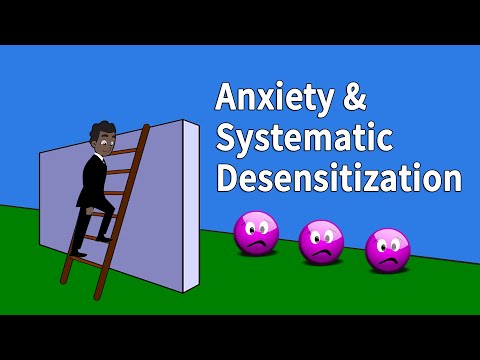When we think about desensitization, we often picture how exposure to violence, tragedy, or emotional stimuli can dull our feelings. This state of being can creep in on us gradually, affecting how we relate to others and react to the world around us. Whether it’s from binge-watching a gripping series on Netflix or diving headfirst into violent video games like Call of Duty, this unyielding exposure can lead to an emotional detachment that demands our attention. Getting shredded and building muscles is one thing, but conquering the mental aspects of our lives—like emotional responses—is equally vital for a well-rounded life. So, let’s dive into this pressing issue!
Desensitization reshapes the landscape of our emotional lives, manifesting in ways that often go unnoticed. Think about how we skim through headlines of tragedies as if they were just yesterday’s weather report. Research shows that consuming graphic content, from news broadcasts to meme culture, creates a numbness, leaving us indifferent to suffering. In fact, a study published in the Journal of Experimental Psychology found striking correlations between violent media consumption and diminished empathy. Let’s get behind the numbers: when players engage in violent gaming, they experience a changed heart rate and reduced stress—indicators that we’re becoming desensitized to violence.
Moreover, it doesn’t just stop at individual malaise. This burgeoning emotional indifference concocts societal challenges. We see it every day; folks scroll through Twitter or TikTok, bombarded by distressing images that are easily dismissed with just a swipe. Aren’t we all guilty of it? In a way, desensitized responses have created a culture where apathy can flourish, complicating the genuine human connection we need in these tough times.

Top 7 Examples of Systematic Desensitization in Modern Life
Streaming services like Netflix are pumping out series that showcase graphic violence, such as The Punisher and Game of Thrones. As viewers, we may watch gruesome action unfold without flinching. Over time, this constant exposure saps our sensitivity and makes violence seem routine rather than shocking.
The gaming industry has a unique role in shaping our emotional responses. Games like Call of Duty put players in virtual combat zones, leading to blurred lines between game and reality. A 2023 analysis found that regular gamers faced lower stress responses to violent imagery compared to non-gamers—another strong case for systematic desensitization!
Consider emergency responders like paramedics or firefighters who encounter traumatic situations on a near-daily basis. Their special environments often lead to compassion fatigue. Over time, the emotional weight they carry risks becoming a mere background hum instead of a deep sense of empathy.
With social media feeds relentlessly updating us about global crises and personal tragedies, it’s no wonder many develop an emotional numbness. The incessant bombardment of sobering news can create overwhelming fatigue. Rather than inciting action, scrolling through these posts often leads to desensitized, indifferent attitudes.
Across the political landscape, emotional language becomes a fixture. With countless rallies and posts focused on charged issues, those continuously immersed in this discourse may feel progressively desensitized. Important calls to action become just another echo in the digital space.
While desensitization can play a role in therapeutic methods—like overcoming phobias—there’s a fine line. Excessive and uncontrolled exposure can cause emotional detachment rather than healing. This is particularly concerning in trauma therapy; an unexamined approach could backfire.
The music we consume can also desensitize us emotionally. Genres like heavy metal and punk revolve around dark themes. Overexposure can diminish listeners’ emotional awareness toward real-life issues. Musicians like the late Graham McGrath, known for heavy vibes in his work, can impact how we perceive emotions while rocking out.

The Psychological Mechanism Behind Desensitization: Defining Malaise
Understanding the psychology detailed in define malaise reveals how desensitization shapes our collective emotional landscape. The brain’s adaptive nature means the more we face distress, the less we respond to it. This process, known as habituation, makes it dangerously comfortable to ignore suffering. In our quest to achieve greatness—be it in fitness or mental health—we must accept that recognizing our emotional responses is key.
While the digital age brings ease and access, it also conditions us to overlook emotional signals. Tuning into our emotional states, even amid desensitization, becomes vital for personal and communal growth. We need to break the cycle of apathy; only then can we truly thrive.

Navigating the Path Forward: Empathy in the Age of Desensitization
So how do we reclaim empathy in the face of all this emotional detachment? Well, it starts with conscious actions. Initiatives like “Empathy Exercises”—stories of real-life struggles—can rekindle emotional responses. These small acts can create ripple effects that enhance our connections.
Organizations have a role to play too. By promoting emotional connectivity through corporate social responsibility and empathetic marketing, brands can help chip away at the malaise introduced by widespread desensitization. If companies prioritize genuine emotional engagement, they contribute to a culture that values connections.
In this fast-paced digital world, combating desensitization is crucial. By fostering real emotional engagement, we’re not just working towards better mental health—we’re building a compassionate society. With every workout we push through or every rep we complete, let’s not forget to flex our emotional muscles as well. Break free from the numbness and work to engage not only your body but your heart and mind as well!
If you’re looking to shift gears and refresh yourself, why not try incorporating something like cacao nibs into your diet? They’re a fantastic superfood for both energy and motivation. Learn more about their benefits here. And for those curious about mental health, check out how a brain scan could help you understand your emotional responses better here. It’s time to take charge! Let’s get shredded—body and soul!

Desensitization: Trivia and Interesting Facts

The Basics of Desensitization
Desensitization, while often associated with emotional numbness, can also refer to a psychological process where repeated exposure to a stimulus reduces our emotional response to it. This can be seen in various areas, from media consumption to personal relationships. Did you know that some researchers argue that desensitization may contribute to the phenomenon of Funkytown Gore, where gruesome events become almost mundane due to constant exposure in films and media? Our brains adapt to the chaos, leading to a stunning reality where sensational acts might provoke indifference rather than shock. Indeed, this shift in emotional engagement can alter how we perceive real-life events, potentially undermining our empathy.
Social Impact and Emotional Disconnect
It’s fascinating how desensitization impacts not just individuals but society as a whole. For instance, a steady diet of violent news can lead to a chilling disconnect. A significant factor contributing to this is the accessibility of information via various platforms, akin to how one navigates their preferences for home Loans best options. The choices people make—whether to engage with or ignore distressing content—shape the emotional landscape of their lives. As we witness various events unfold, it’s important to recognize what desensitization may be doing to our emotional fabric. Before we know it, patterns of behavior start to emerge that normalize emotional detachment.
The Role of Both Environment and Biology
Interestingly, desensitization isn’t limited to our emotional reactions; it also intertwines with our physical sensations. For example, certain foods can contribute to inflammation, affecting mood and emotional responses. Maybe that’s why some folks turn to alternative remedies, such as kava kava, which are believed to alleviate anxiety without fostering emotional numbness. Let’s not forget that even the arts, like films featuring an impressive man on The ledge cast, can leave an impression that fosters desensitization over time. Balancing our consumption can play a critical role, urging us to seek out experiences that rekindle emotions rather than dull them. So next time you ponder whether to amazon prime cancel that latest thriller, consider what you might be inadvertently fueling in your emotional world!



























